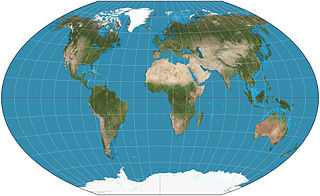geodata 0.10.0  geodata: ^0.10.0 copied to clipboard
geodata: ^0.10.0 copied to clipboard
A geospatial client to read GeoJSON and OGC API Features data sources.
Geospatial feature service Web APIs with support for GeoJSON and OGC API Features clients for Dart.
Features #
✨ New: Updated with latest geobase version 0.3.0 based on Dart SDK 2.17, and no longer with dependency on geocore.
Key features:
- Client-side data source abstraction for geospatial feature service Web APIs
- Implementations to read geospatial features
- GeoJSON features from Web APIs or files
- OGC API Features based services (partial support)
The client-side support for the
OGC API Features standard is not complete,
however key functionality of Part1 of the standard is supported.
Usage #
The package requires at least Dart SDK 2.17, and it supports all Dart and Flutter platforms.
Add the dependency in your pubspec.yaml:
dependencies:
geodata: ^0.10.0
Import it:
import `package:geodata/geodata.dart`
There are also partial packages containing only a certain subset. See the Packages section below.
See also the geobase package, used by
geodata, that provides geospatial data structures (coordinates, geometries,
features, metadata) and vector data format support (encoding and decoding) for
GeoJSON.
Example #
This sample shows to read GeoJSON features from a web resource using a HTTP fetcher.
Please see other examples too.
import 'package:geodata/geojson_client.dart';
Future<void> main(List<String> args) async {
// read GeoJSON for earthquakes from web using HTTP(S)
print('GeoJSON features from HTTP');
await _readFeatures(
geoJsonHttpClient(
location: Uri.parse(
'https://earthquake.usgs.gov/earthquakes/feed/v1.0/summary/'
'2.5_day.geojson',
),
),
);
}
Future<void> _readFeatures(BasicFeatureSource source) async {
// read features with error handling
try {
// get items or features from a source, maximum 5 features returned
final items = await source.itemsAll(limit: 5);
// do something with features, in this sample just print them out
for (final f in items.collection.features) {
print('Feature with id: ${f.id}');
print(' geometry: ${f.geometry}');
print(' properties:');
for (final key in f.properties.keys) {
print(' $key: ${f.properties[key]}');
}
}
} on ServiceException<FeatureFailure> catch (e) {
print('Reading GeoJSON resource failed: ${e.failure.name}');
if (e.cause != null) {
print('Cause: ${e.cause}');
}
if (e.trace != null) {
print(e.trace);
}
} catch (e, st) {
print('Reading GeoJSON resource failed: $e');
print(st);
}
}
Reference #
Packages #
The geodata library contains also following partial packages, that can be used to import only a certain subset instead of the whole geodata package:
| Package | Exports also | Description |
|---|---|---|
| common | Common data structures and helpers (for links, metadata, paged responses). | |
| core | Metadata and data source abstractions of geospatial Web APIs (ie. features). | |
| geojson_client | common, core | A client-side data source to read GeoJSON data from web and file resources. |
| ogcapi_features_client | common, core | A client-side data source to read features from OGC API Features services. |
External packages geodata is depending on:
- equatable for equality and hash utils
- geobase for base geospatial data structures
- http for a http client
- meta for annotations
Authors #
This project is authored by Navibyte.
More information and other links are available at the geospatial repository from GitHub.
License #
This project is licensed under the "BSD-3-Clause"-style license.
Please see the LICENSE.



